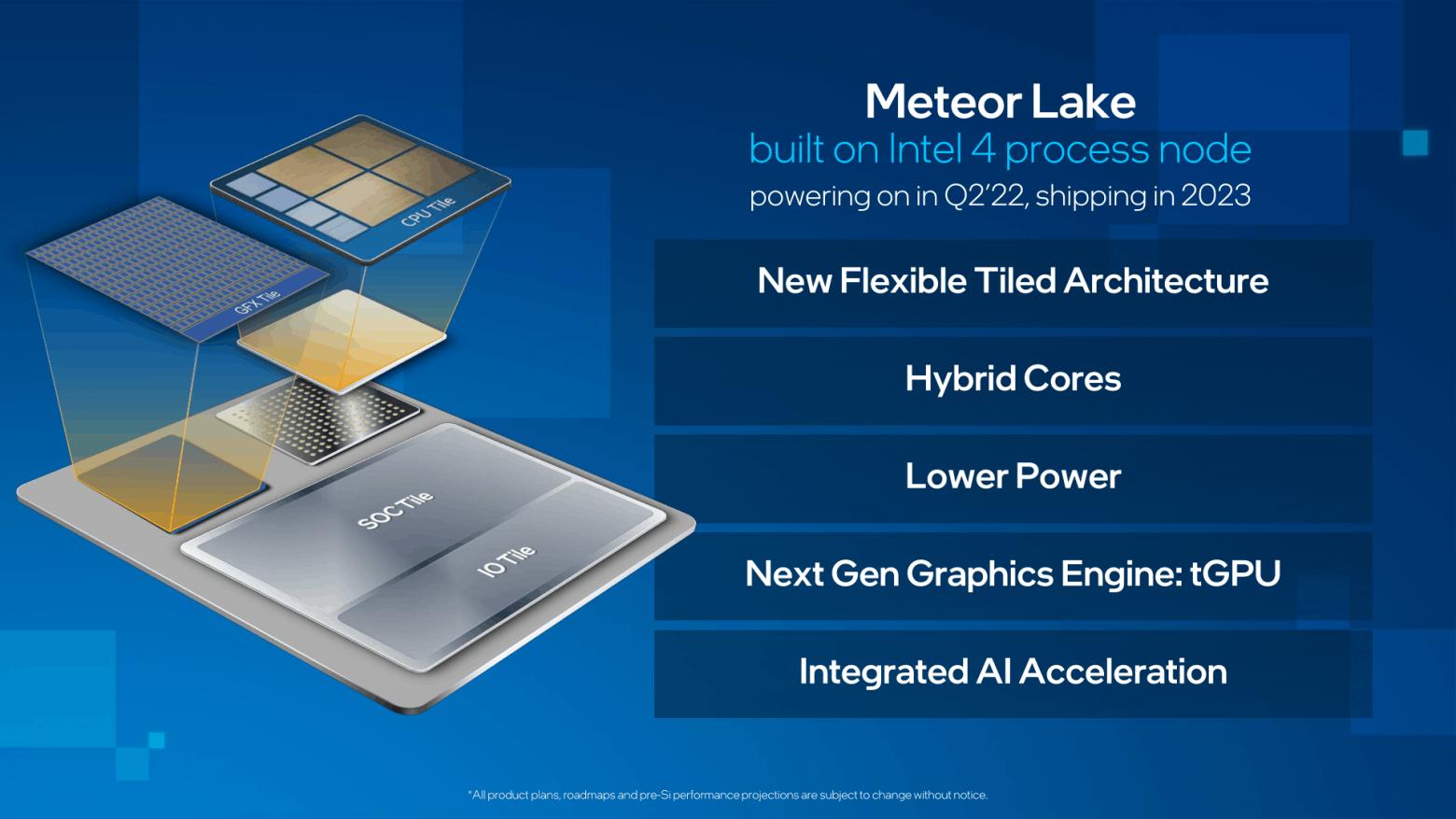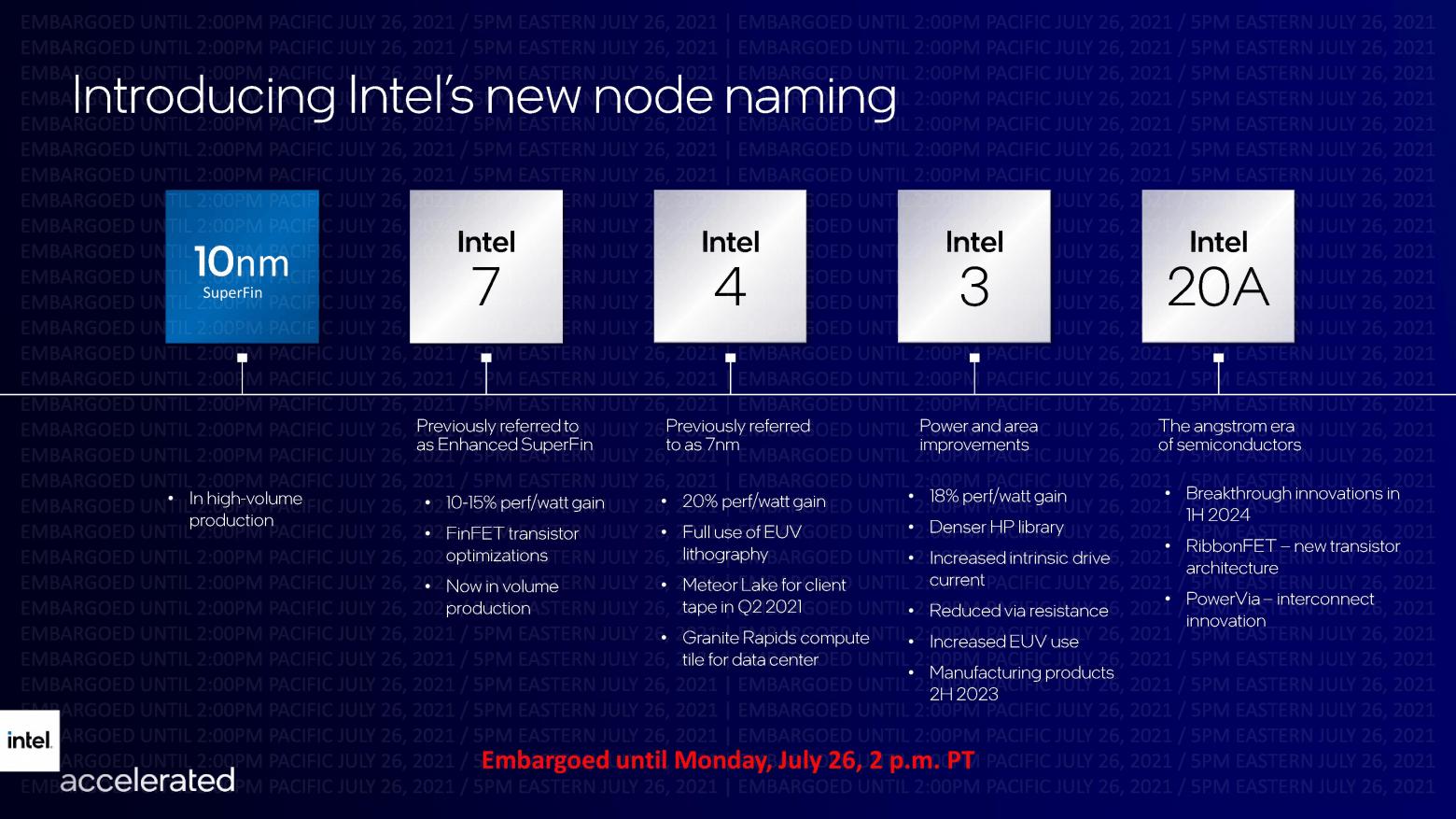The upcoming 14th generation of Intel processors, known as Meteor Lake, is expected to primarily consist of mobile processors. A leak of slides from Intel presentations and previous statements from the company allow making such a prediction. It appears that there will not be full-size desktop versions of the Meteor Lake processors, with the focus being on the laptop market and the iGPU device niche.

According to the slides, the older models of Meteor Lake processors will feature up to six large cores and eight small cores, while the smallest processor will have two main cores and three or four small cores.A total of five processors are expected, with a TDP ranging from 7 to 45 W and a core count ranging from 5 to 14.
Advertisеment
Integrated graphics
The integrated graphics core is expected to be in between the performance of the GTX 1650 Ti and the RTX 3050 for laptops. Graphics performance will vary depending on the specific processor model. The iGPU core will utilize the Alchemist architecture, which is also being used in the development of the Arc family of video cards.
It appears that Intel is returning to a similar approach seen in the 5th generation of Intel Core processors, which focused on a limited line of mobile processors and low-power Xeon server processors. While Intel has officially moved away from its Tik-Tok strategy, the approach to the Meteor Lake generation aligns with the Tik phase. It will feature the Alchemist graphics architecture, low heat dissipation, and a new technical process.

Meteor Lake cores and nanometers
The 14th generation is expected to introduce the new Intel 4 process technology with a 7 nm transistor lithography step. The previous generation, Intel 7, utilized a 10 nm architecture, indicating that the potential for further optimization and reduction has likely been maximized. The release of Meteor Lake was originally planned for the end of 2021, as announced by Intel. But delays in new technical processes have become common for the company. Nanometers are like miles - each manufacturer has its own, but Intel's solution doesn't not impress.
Intel may opt for a "pass-through" release with Meteor Lake, showcasing both the main issues and advantages of the new product, as they may not be fully ready to present a complete release on the Intel 4 architecture. A full-fledged release with older desktop processors is expected in 2024.
The performance of laptops based on the new Intel processors may face competition, considering that the iGPU performance is not expected to be particularly impressive. Additionally, the processors themselves are positioned as energy-efficient and low-power, based on their TDP and core configuration.
CPU cores
The leaked slides suggest that the older models of Meteor Lake processors will feature up to six large cores and eight small cores. The smallest processor in this generation will have two main cores and three or four small cores. A total of five processors are expected with a TDP ranging from 7 to 45 W and a total core count ranging from 5 to 14.
It seems that Intel is not ready to fully introduce the Intel 4 architecture, and this release of Meteor Lake may serve as a preview, highlighting both the main issues and advantages of the new product. A full release of the 14th generation with older desktop processors is anticipated in 2024.
The performance of laptops based on the new Intel processors may face competition, considering that the iGPU performance is not expected to be particularly impressive. Additionally, the processors themselves are positioned as energy-efficient and low-power due to their TDP and core configuration.
Support us
Winaero greatly relies on your support. You can help the site keep bringing you interesting and useful content and software by using these options:

I just bought an Intel NUC with 13th generation Intel CPU.
https://i.imgur.com/lZmjo44.png
Before, I bought a NUC 11 :D
https://i.imgur.com/ydFqlH1.png
Always something new ;)
No Windows licenses on any of them. Run Debian and Pop!_OS. NUC 13 doesn’t work on Windows 11 without drivers, so you can’t even go online to download drivers. Must have another computer for that. In Pop!_OS everything worked from the beginning.